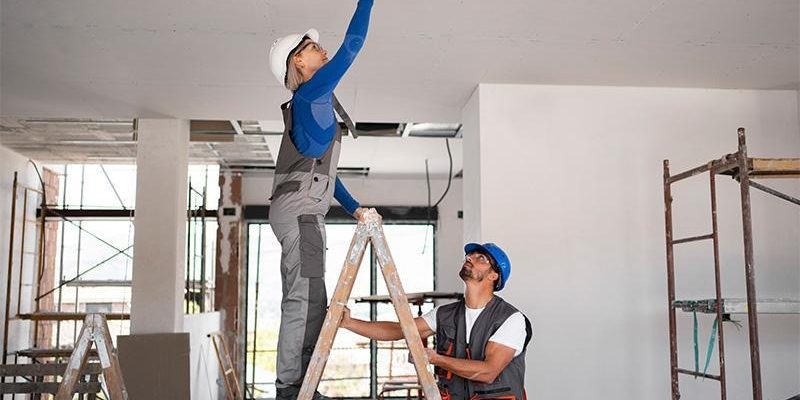Renovating a home in Singapore is an exciting yet complex journey, filled with a mix of creativity, budgeting, and regulatory know-how. Whether you’re upgrading a resale flat or personalising your new BTO, house renovation often brings up many questions. From costs and timelines to specific aspects like kitchen renovation in Singapore, this article will address five frequently asked questions to help you plan with greater confidence.
What Is The Typical Cost Of A House Renovation?
The cost of renovating a house in Singapore varies widely depending on the type of property, the scope of work, and the materials selected. For BTO flats, the renovation budget usually ranges between $20,000 to $40,000. Resale flats, which often require more extensive upgrades such as rewiring, plumbing, and hacking, can cost upwards of $50,000 or more. Condominiums and landed homes command even higher budgets, especially when high-end finishes and bespoke features are involved.
It’s essential to set aside an additional 10% to 15% of your budget for unexpected costs. These may include structural issues uncovered during demolition or upgrades to meet HDB or BCA regulations. Also, be mindful of how much you’re investing in different areas of the home, such as living spaces, bathrooms, and especially the kitchen, where functional design often comes with higher costs.
How Long Does A Renovation Usually Take?
Timelines depend on the scope and complexity of your renovation. A simple cosmetic revamp involving painting and furnishing might take two to four weeks. More comprehensive works that include hacking walls, installing built-ins, or extensive plumbing can take anywhere from eight to twelve weeks. For larger projects, especially in older resale flats, timelines could stretch even longer.
It is important to account for pre-renovation activities like planning, design finalisation, and permit applications. Working closely with your contractor or interior designer will give you a more realistic timeline. Additionally, avoid scheduling renovations around major holidays such as Chinese New Year, as manpower availability may be limited, leading to delays.
Do I Need A Permit For Home Renovation?
Yes, certain renovation works require permits, especially for HDB flats. Hacking structural walls, changing the layout of the kitchen, replacing floor tiles, or doing any rewiring must be approved by the relevant authorities. HDB has strict guidelines to ensure structural integrity and safety for all residents in the block.
It’s advisable to work with an HDB-registered renovation contractor who is familiar with these regulations. For private properties, the Building and Construction Authority (BCA) may also require permits for specific types of work. Your appointed professional should handle all submissions, but it’s good practice to be informed about the approval timelines and compliance requirements.
What Are The Latest Trends In Renovation And Design?
Singaporean homeowners today are increasingly drawn to modern, functional layouts with minimalistic aesthetics. Open-concept living spaces, neutral colour palettes, and clever storage solutions are some of the top trends. Smart home integration—such as app-controlled lighting, motorised blinds, and voice-activated appliances—is becoming more popular as well.
Another key trend is sustainability. From energy-efficient lighting to water-saving fixtures and eco-friendly materials, many renovation plans now incorporate green elements. When it comes to specific spaces, kitchen renovation in Singapore often focuses on maximising storage and usability, with integrated appliances and quartz countertops being among the most sought-after features.
How Do I Choose The Right Interior Designer Or Contractor?
Selecting the right professional can make or break your renovation experience. Start by researching portfolios and checking for reviews from previous clients. It’s also helpful to choose someone with experience in the type of property you’re renovating—be it HDB, condo, or landed home.
Interior design plays a vital role not just in aesthetics, but in optimising space and function. Arrange consultations to assess whether the designer understands your vision and can work within your budget. A good designer should also be able to advise you on layout practicality, material selection, and the best way to blend form with function.
Communication is key, so look for someone who provides detailed quotations, clear timelines, and regular updates. Signing a proper contract with a payment schedule and clauses on project scope will also safeguard your interests.
Conclusion
Renovating a home in Singapore involves more than just a fresh coat of paint. From understanding timelines and permits to making choices about interior design and budgeting for kitchen renovation in Singapore, careful planning is the cornerstone of a successful project. With the right professionals and a clear vision, you can transform your space into one that’s not only stylish but also functional and compliant.
If you’re preparing to renovate, start by gathering inspiration and speaking to experienced designers who understand the local landscape. Don’t wait—lay the foundation for your dream home today.Contact Interior Times today to make your ideal home a reality.

Comments